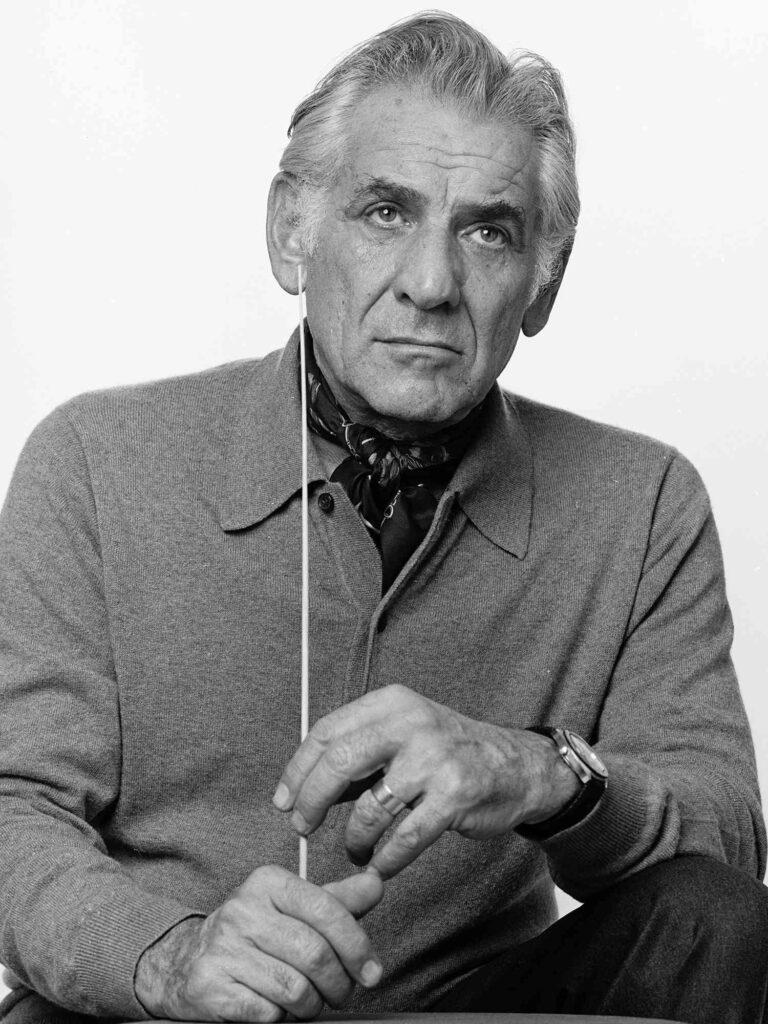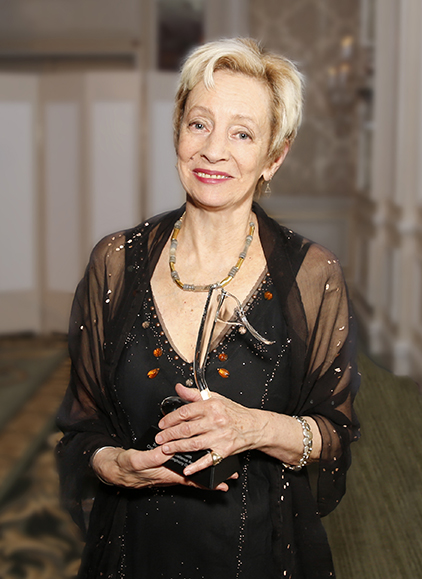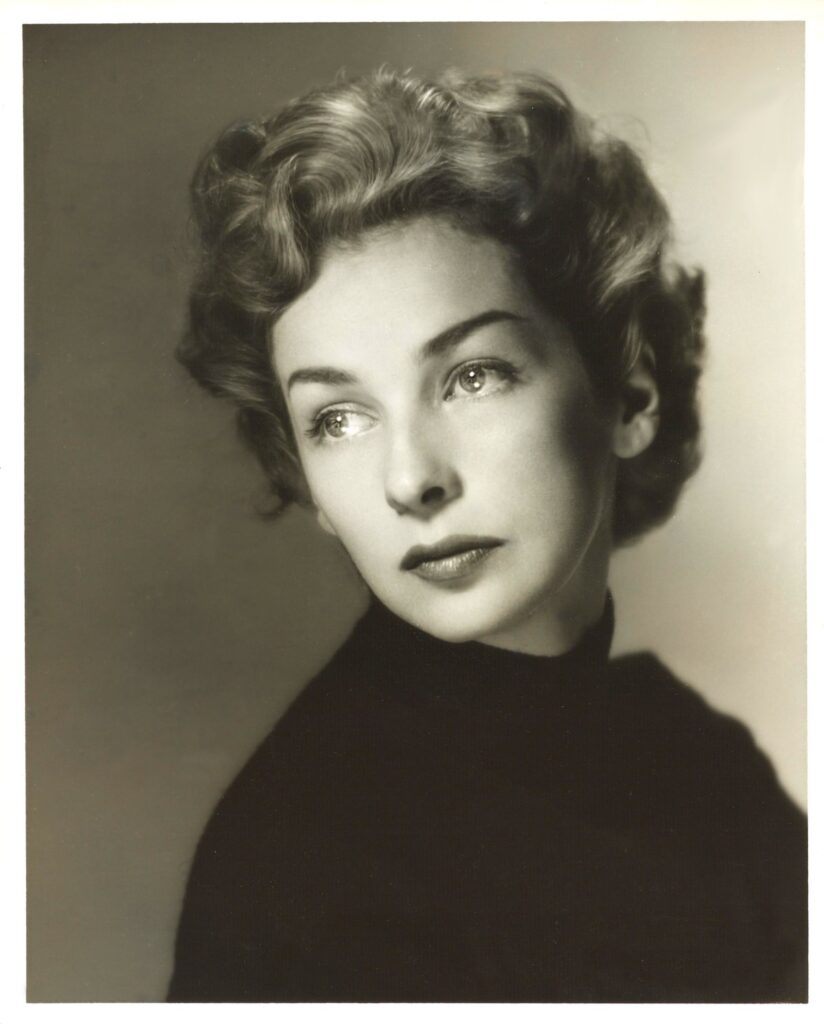Leonard Bernstein Gay: The highly anticipated musical biopic, “Maestro,” is poised to explore Leonard Bernstein’s life with a nuanced focus on his sexuality, including his relationships with both his wife and male lover, portrayed by the talented Carey Mulligan and Matt Bomer.
Rumors suggest that Bernstein sought guidance from Aaron Copland on navigating life as an openly gay man, a particularly bold choice during a time when few American musicians were open about their sexuality.
The film delves into Bernstein’s marriage with Felicia Montealegre, with evidence drawn from a collection of intimate letters between the couple.

In one poignant letter, Felicia, the Costa Rican-American actress, addressed Bernstein’s sexual orientation directly, writing, “You are a homosexual and may never change.”
Despite this candid acknowledgment, Bernstein and Felicia shared a life together, raising three children—Jamie, Alexander, and Nina.
Scholars align on the consensus that Bernstein while marrying a woman, identified as a gay man rather than subscribing to theories of bisexuality.
Also Read About: Burke Ramsey Wikipedia: Father, Mother, Sister & More On His Autism
Was Leonard Bernstein Gay Or Bisexual?
In his youth, Leonard Bernstein was a man of exceptional talent and striking handsomeness, his allure transcending gender boundaries as he engaged in relationships with both men and women.
His sexuality appeared to be all-encompassing, embodying a sense of omnisexuality—a testament to his insatiable appetite for life.
Bernstein was a whirlwind of energy, tirelessly working and playing throughout the day and well into the night.
His relentless drive, coupled with a motor that refused to shut down until physical exhaustion, fueled his pursuits in conducting, composing for both the concert hall and the theatre, piano performance, teaching, and engaging in various forms of media, including writing and television appearances.
His relentless commitment to his work and an internal struggle over unexplored creative avenues led him to burn the candle from the middle out.
From the 1940s to the 1980s, Bernstein’s omnipresence in the cultural landscape was unparalleled—an intellectual American Adonis.
He seamlessly blended erudition with widespread appeal, demonstrating media savvy and an unstoppable fluency in his craft.
While many aspire to be the center of attention, Bernstein not only occupied that position but excelled in it, consistently giving more than he received.
Daughter Jamie Bernstein
In her memoir, “Famous Father Girl: A Memoir of Growing Up Bernstein,” Jamie Bernstein, the firstborn daughter of the legendary Leonard Bernstein, offers an intimate portrayal of a family shaped and dominated by her overwhelming yet deeply loving and inspired father.
In a genre often marked by formality, Jamie’s narrative stands out for its physical intimacy, humor, and tenderness, presenting a complex portrait of a family overshadowed by the brilliance of its patriarch.
Growing up, Jamie grappled with the paradox of establishing her individuality within the shadows cast by her father’s genius.
Her memoir unfolds as a unique exploration of self-discovery amid the pervasive influence of a remarkable parent.
Unlike typical classical music memoirs, Jamie’s account navigates the ambivalence she felt toward her irrepressible family genius, offering readers a compelling inside view.

Chicago Youth Symphony Orchestras)
Released during the centenary celebrations of Leonard Bernstein, the memoir becomes a captivating lens through which to observe the glories and corrosions of Jewish-American family love.
It doesn’t merely aim to correct any perceptions (as Jamie consistently held her father in high regard), but rather, it paints a vivid picture of a family’s enduring love, complete with its complexities.
Amid the worldwide commemorations of Leonard’s legacy, Jamie’s storytelling stands as a testament to her commitment to truth-telling over preserving a façade of dignity.
She authentically captures the unease inherent in living on the slopes of a metaphorical volcano, creating a narrative that resonates with readers on a deeply human level.
Leonard Bernstein Wife Felicia Montealegre
Following a whirlwind chapter in his youth, Leonard Bernstein entered into matrimony with Felicia Montealegre in 1951 when he was thirty-three and she was twenty-nine.
Montealegre, hailing from Chile, embodied a fascinating blend of South American aristocracy and American affluence.
Her mother, of Costa Rican and Catholic descent, and her father, an American Jew and prosperous industrialist, painted a rich tapestry of her heritage.
Felicia, an accomplished actress with refined elocution, represented a bygone era of elevated dramatic styles, particularly in contrast to the rising popularity of naturalistic modes.
Proficient in narrating oratorios, she experienced success on the stage and within the burgeoning realm of live TV drama.

Once Bernstein assumed the role of music director for the New York Philharmonic in 1958, Felicia became a gracious hostess, entertaining luminaries from both the musical and social spheres.
Despite their divergent temperaments, with Felicia gravitating towards rules and order while Bernstein reveled in his idiosyncratic habits, the couple found themselves temperamentally at odds yet deeply enamored with each other.
Their union was characterized by a unique blend of love and tension, with Felicia providing a structured foundation for a husband who luxuriated in both disciplined and unrestrained aspects of his life.
The dynamic interplay between their contrasting personalities added depth to their relationship, creating a complex but enduring bond.

